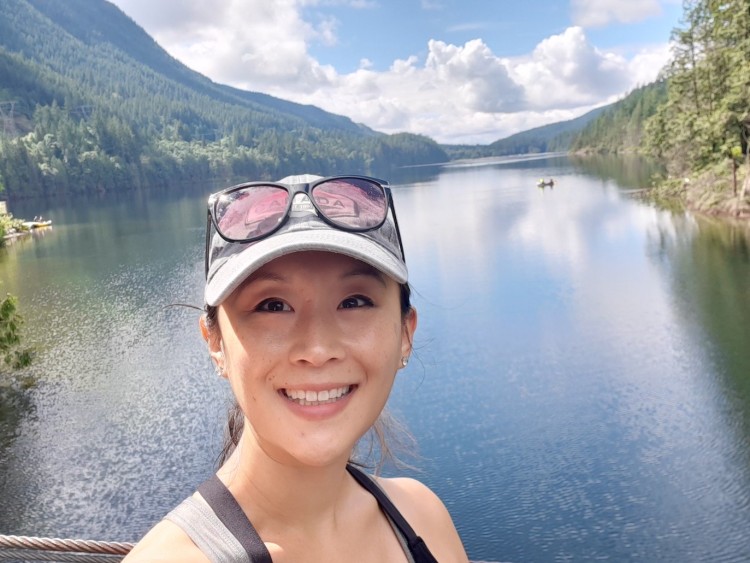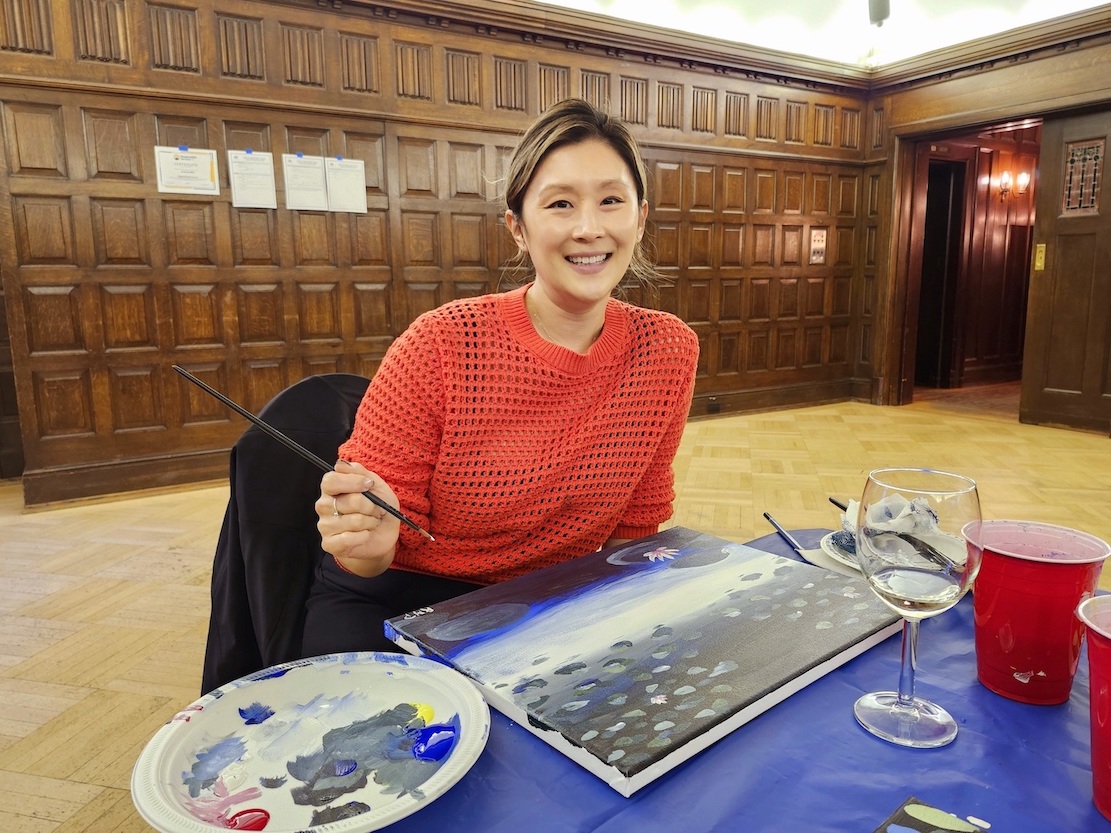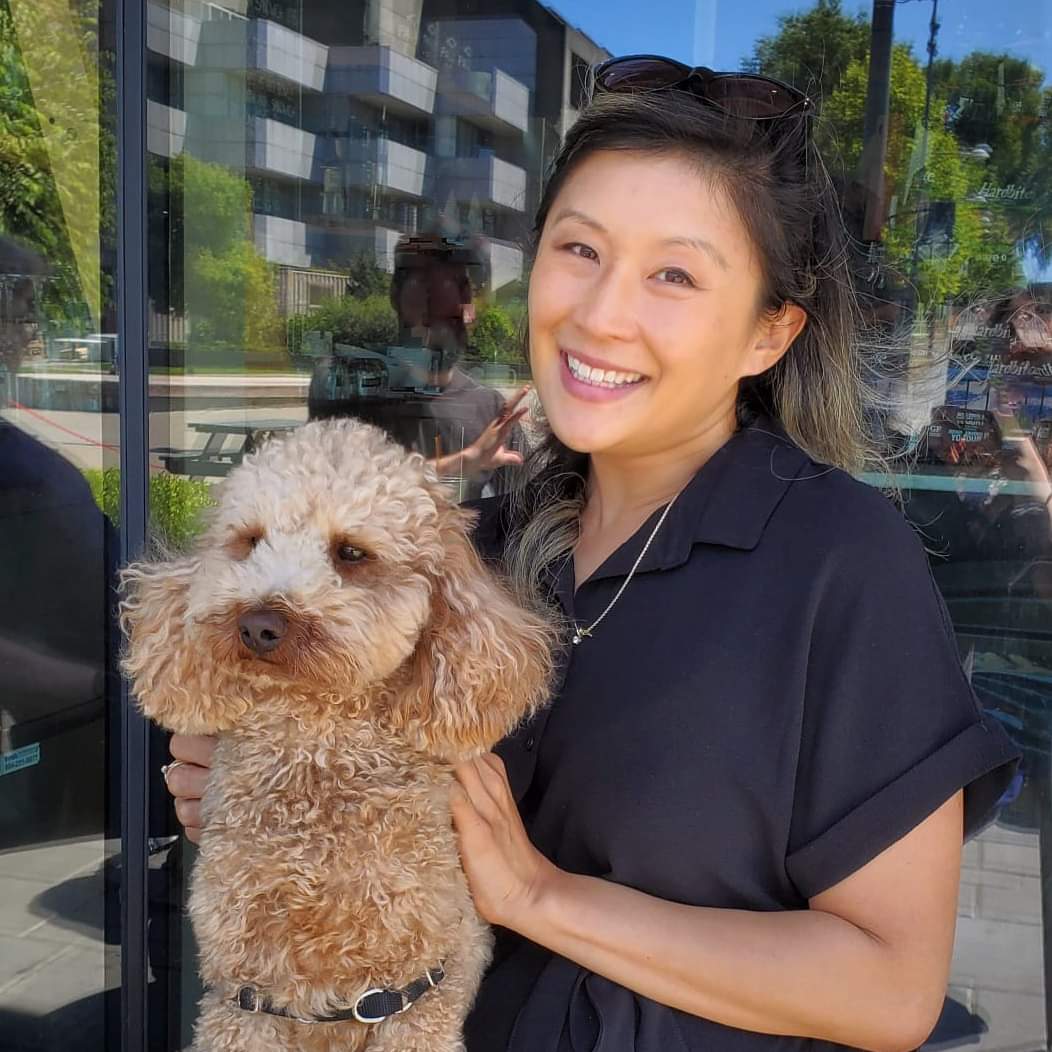
Montalbano Centre Faculty in Focus: Rebecca Paluch

The relationship between employees and organizations is changing rapidly. Not too long ago, people could chart out their entire careers at one company. Now, it's common for people to go through multiple career resets—and varied job profiles—at different stages of their lives.
This evolving landscape of career paths and how that shapes organizations' responsibilities towards their employees is the focus of Dr. Rebecca Paluch's work. She's an Assistant Professor in the Organizational Behaviour and Human Resources Division at the UBC Sauder School of Business, and a thought leader at The Montalbano Centre for Responsible Leadership Development. Dr. Paluch recently talked to us for the “Montalbano Centre Faculty in Focus” series, where we have in-depth conversations with faculty members to understand how they're poised to carry out the Montalbano Centre's mission.
In this interview, Dr. Paluch talked about boomerang employment, the untapped power of an organization's alumni network and the literature that's shaping her research. But first, she shares about her own journey that led to UBC Sauder.
RP: In my first job after university I worked as a financial consultant. I spent a few years on different projects, but over time I realized that the long-term career path wasn’t the right fit for me. To be honest, I didn’t really know what I wanted to do next, so I took a leap and moved to Thailand to teach accounting at a university. It was an incredible opportunity to explore more of the world, and at the same time, I was able to take a step back and think about what kind of career I really wanted.
Reflecting on my consulting experience and my work in different countries, I realized I was always thinking about how organizations shape people’s experiences and relationships at work. That continued curiosity led me to Human Resource Management. After Thailand, I worked in HR roles in places like Chicago Public Schools and the Federal Reserve Bank of Chicago before I finally started my doctoral program focusing on Human Resource Management at Cornell University.
I like to share my winding career path, especially with students. It’s okay to not know what you want to do during your university career or to realize that your interests change along the way. Careers today aren’t straight lines, and that’s completely normal.

If you could pick a book that's shaped how you think about careers and companies, which one would it be?
RP: Two books come to mind. One is The Boundaryless Career: A New Employment Principle for a New Organizational Era by Michael Arthur and Denise Rousseau. This book shaped how I think about the way careers unfold over time. Traditionally, we’ve thought of careers as a series of jobs within a single company, but in today’s work world, most workers move across eight to ten organizations throughout their work lives. This shift is what the book calls a “boundaryless career”—a career that’s shaped less by one employer and more by the individual navigating transitions across jobs, industries, and sometimes even countries.
The second book I want to highlight is The Alliance: Managing Talent in the Networked Age, co-authored by Ben Casnocha, Chris Yeh, and Reid Hoffman, the founder of LinkedIn. They introduce the concept of tours of duty. Instead of viewing a career as one long, monolithic journey, they break it into distinct tours—each with its own goals and learning opportunities. Even if an employee stays with the same organization, thinking in terms of these segments can help them stay motivated and focused. Rather than planning for the next 10 years, it shifts the mindset to "What am I learning this year? What am I contributing to?" Then, at the end of a tour, the employee and the organization can jointly reflect on what did or didn’t work. I love how this approach redefines the employment relationship. Leaving a job or an organization isn’t seen as disloyalty—it’s a natural part of career progression.
Let's dive into your own research now. What are the big research questions you're tackling at The Montalbano Centre?
RP: My research broadly looks at how organizations build and manage relationships with their workforce—especially in a world of work that continues to change and evolve. In some cases, this means figuring out how to support a more diverse workforce, which is something I also study. In other cases, it’s about learning how to adapt to a more mobile workforce, where people no longer stay at one company for their whole career.
Focusing on management of mobile workers, my research explores how organizations maintain relationships with former employees. In fact, we now have a term for those kinds of relationships. We call those alumni-organization relationships.
If you think about the employment relationship, it’s built on a series of exchanges—employees contribute time, skills, and effort, while organizations provide financial rewards, development opportunities, and a sense of community. But what happens to that relationship when employees leave?
In some cases, it ends completely. But in today’s interconnected world, many of these relationships continue. Many organizations are realizing they can re-engage alumni through continued resource exchange. For example, organizations can offer professional development workshops, present alumni webinars with industry insights, or host networking events that allow alumni to reconnect. In return, alumni may recommend the company to others, hire the former employer for professional services, or even return as a ‘boomerang’ employee.
From a leadership perspective, I think it’s important to ask: how can we continue to support employees even after they’ve moved on? In the past, an employer’s responsibility for the individual ended when the job did. But now, in a more dynamic and mobile career landscape, I don’t think that responsibility disappears completely.
This is especially true in the case of layoffs, which we are seeing happen more often. We know layoffs can have serious mental health effects—not just for individuals, but for communities and broader society. Thinking more carefully about how to support and stay connected to people after they leave isn’t just good strategy—it’s responsible leadership.
How can investing in nurturing alumni ties also be good for business?
RP: One organization that runs a successful alumni program is McKinsey, and they've turned their alumni network into a valuable business relationship source. Their former employees often leave McKinsey and become accomplished CEOs, CFOs, and chief legal officers. When the same leaders need to hire a consulting company, they will likely start with their former employer. This isn’t only out of loyalty, but also because they are familiar with the culture and processes at their former organization.
Lastly, speaking of UBC Sauder's alumni network — how can they use your research at The Montalbano Centre to foster responsible leadership at the workplace?
RP: I hope my work helps leaders understand their responsibility toward employees, both current and former. It’s not just about productivity or getting the most out of a team. It’s about encouraging employees to do their best work while also supporting their long-term careers. That kind of leadership not only strengthens relationships inside the company; it helps sustain them even as people move into the next chapter of their professional lives.

For leaders looking to support both current and former employees, I’d suggest three key steps.
- Invest in long-term career development. Consider how you’re supporting employees not just in performing their current roles, but in building skills and gaining experiences that will serve them well throughout their careers.
- Create thoughtful exit transitions. Make sure employees feel valued for their contributions and want to remain part of the community as they exit.
- Stay connected after exit. Keep the lines of communication open. Let alumni know who to reach out to if they’re interested in returning, and invite them to stay involved through events, updates, or professional networks.
These steps help leaders build lasting relationships with alumni and reflect a more thoughtful and responsible approach to leadership in today’s dynamic world of work.
Stay in touch
Join our monthly newsletter and stay up-to-date on our innovative academic programs, world-leading faculty and research, and student and alumni achievements.